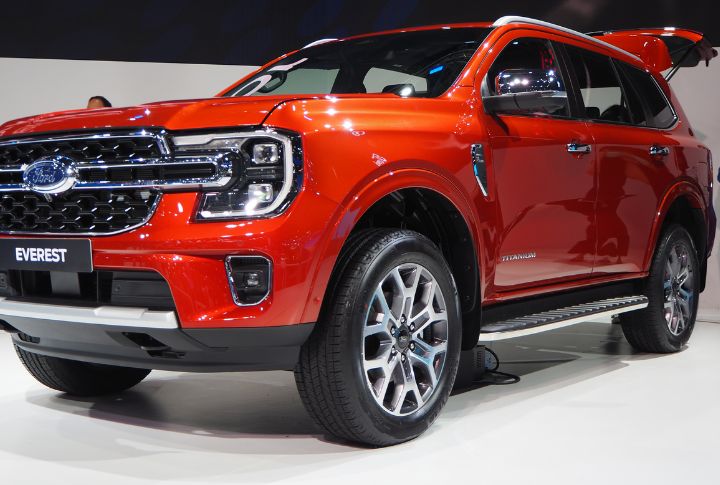
15 Lesser-Known Ford’s Automotive Brands

Ford Motor Company, a staple in the automotive industry, is known for its significant impact on car manufacturing and its legendary models. Beyond its well-known Ford and Lincoln editions, the company has historically been interested in other lesser-known brands and joint ventures. Here’s a look at 15 of these that you might not be familiar with:
Mercury

Launched in 1938, the brand offered more style and efficiency than the average Ford but was more accessible than the luxurious Lincolns. Despite achieving success with the Cougar, the Comet, and the Marquis models, Mercury’s distinct identity started to blur by the 1990s. By the early 2000s, Mercury’s offerings began to overlap with Ford’s, leading to its discontinuation in 2010.
Edsel

The Edsel brand debuted in the late 1950s as a new, premium marque that would fill gaps in the sector and challenge competitors. Yet, after a highly publicized launch, the brand faced consumer indifference mainly because it launched during an economic recession. As a result, the project became a massive failure, serving as a cautionary tale of misreading market demands.
Jaguar

The 1989 acquisition of this British luxury car manufacturer was a pivotal moment in Ford’s history. Under Ford’s stewardship, Jaguar benefitted from shared engineering expertise and a more robust financial foundation, facilitating the launch of new models. After 18 years of proprietorship, Ford decided to divest Jaguar, selling it to Tata Motors, a major player in the global automobile industry.
Land Rover

Acquired in 1989 and part of the Premier Automotive Group, Land Rover benefited immensely from Ford’s substantial resources. In 2007, Ford decided to sell Land Rover and Jaguar to Tata Motors, one of India’s largest car manufacturers. This sale was part of a restructuring effort by Ford to streamline its operations and focus on its core products.
Volvo Cars

Volvo Cars, the distinguished Swedish automaker, belong to Ford Motor Company from 1999 to 2010. Under Ford’s tenure, Volvo introduced several safety innovations that reinforced its market position as a leader in automotive safety. Notwithstanding Ford’s decision to sell Volvo to Geely Automobile in 2010, the strategies already implemented laid a strong foundation for Volvo’s future developments.
Aston Martin

In 1987, Ford purchased Aston Martin, a brand famous for its high-performance sports cars. With Ford’s help, Martin revitalized its product line, strengthened its global presence, and recovered from financial crises. Twenty years later, Ford sold most of its Aston shares while retaining a small stake until 2013, demonstrating a gradual rather than a rapid exit.
Mazda

Ford’s relationship with Mazda began in 1979 when Ford acquired a 7% stake in the Japanese automaker. Later, Ford gradually increased its shares to 33.4%. However, as the automotive sector evolved, Ford started reassessing its priorities and divesting its assets. This development gradually reduced Ford’s stake in Mazda, culminating in an official severance of ties in 2015.
Hertz

After surviving for decades as a significant player in the car industry, Hertz came under Ford’s management from 1987 to 2005. This symbiotic relationship allowed both companies to benefit mutually. Ford gained increased exposure for its cars, and Hertz provided customers access to a fleet of vehicles that included the latest offerings from Ford’s lineup.
Troller

Troller, a beloved Brazilian SUV manufacturer renowned for its rugged off-road vehicles, sold its assets to Ford in 2007. However, Troller continued to uphold its reputation for crafting durable and capable cars, appealing to adventurous drivers seeking exploration beyond the beaten path. Sadly, in 2021, amidst restructuring and operational adjustments, Ford discontinued the Troller brand.
Ford Performance Vehicles

From 2002 till 2014, Ford Performance Vehicles (FPV) emerged as a collaboration between Ford Australia and Prodrive. Focusing on innovation and precision engineering, it became synonymous with agility and next-generation design. Throughout its tenure, FPV introduced a range of super vehicles, like the FPV GT Falcon and FPV F6, each meticulously engineered to push the boundaries of productivity.
TH!NK

TH!NK, initially established in 1991, was a Norwegian electric vehicle manufacturer that aimed to revolutionize transportation. It became Ford’s in 1999, marking a significant milestone in the electric vehicle market and signaling Ford’s interest in exploring alternative fuel technologies. However, despite initial investment, Ford divested TH!NK in 2003, shifting its focus back to traditional automobile manufacturing.
Visteon

Established by Ford to specialize in automotive electronics and interior systems, Visteon quickly gained recognition for its innovative solutions and contributions to the sector. In 2000, Ford spun the arm off as an independent corporation as part of a strategic restructuring move. This development began Visteon’s journey as a standalone entity, allowing it to focus extensively on its core competencies.
Autolatina

Autolatina emerged as an agreement between Ford and Volkswagen from the 1980s to the 1990s. This joint venture hoped to capitalize on the strengths of both manufacturing giants, leveraging shared production facilities and pooling resources together. Thus, Autolatina combined Ford’s and Volkswagen’s distinct technological prowess and marketing insights to create a synergy that propelled the industry forward.
Mercury Marine

Ford and Mercury Marine’s relationship started in the 1930s. Ford acquired Mercury Marine, integrating it into its portfolio of brands and giving it access to Ford’s facilities and distribution network. Mercury Marine flourished as a result, but as the car and marine industries evolved with time, Ford divested its management of Mercury Marine.
AC Cars

Ford’s ownership stake in AC led to the collaboration between AC and Carroll Shelby. This partnership birthed the AC Cobra, one of history’s most celebrated sports cars. The Cobra combines AC’s craftsmanship with Ford’s powerful engines and Shelby’s racing expertise. Despite changes in ownership and shifting dynamics, AC Cars have maintained its commitment to excellence and luxury.


